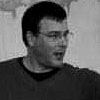 |
| home
news
concerts discography images biography
links
about us site
map contact |

Note to journalists and promoters: This is NOT Andreas Scholl's official biography for use in concert programmes
which is available at the website of his worldwide agents: Harrison/Parrott
 Biographie
auf
deutsch bei KlassikAkzente
Biographie
auf
deutsch bei KlassikAkzente
|
Audio sample info: Maria Zart ((text here) by
Arnolt Schlick (1460-1521) sung by the 16-year old
Andreas Scholl. From the CD Gregorianischer Choral Musik
auf Historischen Instrumente © 1984 Rainer
Hilkenbach.
You need Flash to use the embedded player on this page. To launch the track in your own player, click here. Samples are played on this not-for-profit site in the hope that visitors will be tempted to buy the full recordings. If you own copyright in any of them and object to our using it, we will remove it. Please mail us now. |
Click here for how to describe Andreas Scholl's voice correctly.
| Introduction | 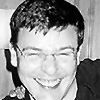
Photo: JG Andreas Scholl was born on 10 November 1967 into a musical family of Kiedrich im Rheingau, a Catholic town of 4,000 inhabitants in the wine-growing region around Wiesbaden in Germany. The town is famous for its Gothic church which contains the relics of St Valentine and boasts the oldest playable organ in Germany. His sister is Elisabeth Scholl, the soprano. His brother, physician Johannes, is an amateur baritone and his parents were both choir singers. His second sister, Christine, who died in her twenties, was a talented and much-admired contralto.
Growing up right next door to the
church, Andreas Scholl was enrolled at the age of
seven into the Kiedricher
Chorbuben, first documented in the
year 1333 as a schola of 'men assisting
the priests on all Sundays, singing the Gregorian
chants'. Later, it became a boys' choir
school. In 1857, Sir John Sutton, an English
Catholic baronet who was cruising down the Rhine,
fell in love with Kiedrich's church, its choir and
the
organ, the oldest playable
organ in Germany, dating from 1500. Sutton had the organ repaired
and the foundation which he set up for the
Chorbuben enabled the engagement of teachers and
the construction of school and rehearsal
facilities, and paid for the reprinting of ancient
books of Gregorian music. The street in which the
church stands was re-named after Sutton who is
buried in the garden of the church. As boys,
Andreas Scholl's father and grandfather were both
members of the Chorbuben. Scholl says: ‘For me,
the most wonderful thing about this choir was the
amount of Baroque and Renaissance music it
performed. This means I never grew up thinking of
"early music" as some special category. To me it
has always been as familiar as Beethoven and
Mozart.’ Scholl returns to Kiedrich
regularly from his home in Basel, Switzerland, and
often gives concerts in the parish church in which
his musical career began. ... |
| The boy | 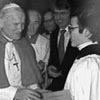 ..with Pope John Paul II ..with Pope John Paul IIThroughout his ten years in the choir school, the boy Andreas learned to love sacred music and he still gets goose bumps recalling the joy of singing the final part of the closing chorale from Bach's St John Passion at the age of seven or eight, although he sang less Bach at this time than work by other composers like Schütz and Pergolesi. At the age of thirteen, he sang the second boy (Elisabeth sang first boy) in Mozart's Magic Flute at the Wiesbaden Staatstheater. That same year, Andreas was one of some 20,000 choristers from all over the world in Rome for the Pueri Cantores festival. He was chosen to sing solo at Mass on Sunday 4th January 1981 and on the following day, accompanied by his choirmasters, he met Pope John Paul II. Along with his fellow choristers, Andreas Scholl was an extra in the film The Name of the Rose, playing a young monk standing alongside Sean Connery in scenes shot at Kloster Eberbach, near Kiedrich. There are photographs from Andreas Scholl's movie debut here.
When his speaking
voice broke at 13, he went on singing soprano or
alto. ‘We were all great friends in this choir, so
nobody joked about it. To me it just came naturally.
I never felt comfortable in a tenor or baritone and
I think it has helped my technique that I never had
a phase of singing in those ranges.’ ... |
| Career choices | 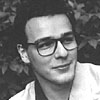
He was seventeen,
just one of the boys in the choir, playing football
and working for his exams, when his natural gift as
a countertenor was identified by the Chorbuben's
voice coach from the Darmstadt Music Academy, who
said: 'This sounds more and more like a countertenor
voice, not a boy alto.' Andreas Scholl adds:
'She told me it was rare that someone keeps a voice
of such quality through adolescence and I should
think about that', so he sang for the
tenor/countertenor Herbert Klein, who said yes, he
had a voice. Now he began to consider a professional
singing career. His father was doubtful, concerned
that his younger son might not be able to earn a
living in music. Scholl had been thinking about
entering the Salesian order as a priest or possibly
becoming a professional soldier but eventually he
decided that he did not have a religious vocation
and, in the event, less than perfect eyesight meant
that his military career amounted to two years'
compulsory service. One day - under orders - he sang
a Gregorian setting of the Ave Maria for the
men in his barracks, stunning them with his amazing
voice. He had expected them to laugh but they were
impressed. ... |
| The student | 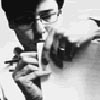
The tenor/countertenor Herbert Klein advised him that there were only two places he should study: either in London or at the early music conservatoire in Basel, the Schola Cantorum Basiliensis. Since the time an uncle had introduced him to the voices of Paul Esswood and James Bowman, the leading European countertenors of the day, he took Bowman as his role model. He sent a tape to René Jacobs, the Belgian countertenor and conductor, asking him to say whether he had talent. 'He told me to go to the Schola Cantorum Basiliensis, where he taught.' The Schola Cantorum only accepted people for post-graduate degrees at that time, and Andreas Scholl had no first degree. 'I sang a Schubert song for the admissions board, which included Jacobs. It was somewhat embarrassing because in the choir we had learnt everything by heart and I had no training in sight-singing or basic skills. I hadn’t applied for a formal audition but I was offered a place and I jumped in. Ever since, René Jacobs has been a marvellous friend and mentor.’ From Andreas Scholl's first year at the Schola, his teacher was Richard Levitt and in his second year he also began to study with Jacobs. Violinist Chiara Banchini and soprano Emma Kirkby were major influences as he began to specialise in the music of the Baroque and he also studied with soprano Evelyn Tubb and lutenist Anthony Rooley. When he first went to Basel he knew little theory or how to really listen to music in order to contribute, but he worked hard and was a star student among many gifted young musicians. As well as his Diploma of Ancient Music, for which his external examiner was James Bowman, he collected prizes from the Conseil d'Europe and the Fondation Claude Nicolas Ledouxm, and awards from Switzerland's Association Migros and Ernst Göhner Foundation.
At the Schola,
Andreas Scholl learned to respect but be wary of
musicology and asserts that, in performance, the
intention of the composer and communication of the
text should have priority. He now teaches in the
Schola Cantorum Basiliensis, succeeding his own
teacher, Richard Levitt. ... |
| The débutant | 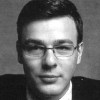
Andreas Scholl's
professional début was the proverbial dream
break which enabled him to skip the concert
performances usually necessary to establish a young
performer's career. On 24 January, 1993, he stood in for
René Jacobs at Jacobs' request, and at almost
no notice, at the Théâtre Grévin
in Paris, and he caused a sensation. Two days later, he sang in Bach's St
John Passion at the same theatre. This performance was broadcast on Good Friday to a
radio audience which included William
Christie. A little later, Christie
met Scholl on a train between Caen and Paris and
gave Scholl his card, saying: 'Get in touch with
me.' The 1994 recording of Handel's
Messiah with Les
Arts
Florissants resulted directly from
this casual meeting. It was widely acclaimed and
Andreas Scholl's professional career was under way. ... |
| By Royal Appointment | 
On 4th December
1999 Andreas Scholl sang the Agnus Dei from
the B
Minor Mass of J S Bach at the
wedding of Belgium's Prince Filip to Mathilde
d'Udekem d'Acoz in the Cathedral of St Michael and
St Gudula, Brussels. In 2003, he sang it in
Bach's own church of St Thomas in Leipzig. |
| A world first |
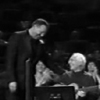 with guitarist John
Williams with guitarist John
WilliamsIn London, on
10th September 2005, Andreas Scholl sang at The Last Night of the
Proms, the closing concert of the world's
biggest classical music festival or, as he described
it in an interview, 'the biggest classical event on
the planet'. Until then, no countertenor had ever
been invited to sing at this event. Its worldwide
audience through TV, radio and the internet has been
estimated at 400 million and most critics agreed
that 'Scholl stole the show'. Click here to read
about this performance and about The Proms
|
| Recordings | 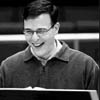
Andreas Scholl's
recording career has been phenomenal, first with
Sony Music and a number of smaller labels and then
with Harmonia
Mundi. By 1998 his CDs dominated
Harmonia Mundi's hit list at numbers one, three,
four, five and ten, and they are still among
Harmonia Mundi's best sellers. Now recording
giant Decca
scooped him up. His discography amounts to more than
sixty CDs, all but two being music of the European
Baroque or Renaissance. Recordings in which he
has collaborated, including all but one of his solo
recordings, have won awards. His personal accolades
include the Diapason d'Or, multiple Gramophone
Awards, 10 de Repertoire, ffff Telerama and Choc
du Mond de la Musique, the ECHO award
and Prix de l'Union de la Presse Musicale Belge.
In an extremely rare departure from its normally
austere approach, Fanfare magazine described
his recording of Dowland's A
Musicall Banquet as 'perfect'. The
recording of the St John Passion of J S
Bach conducted by Philippe Herreweghe on which
Andreas Scholl sings Es ist vollbracht, was
nominated for a Cannes Classical Award in 2003. He was Germany's Kultur Radio Artist
of the Year in 1998. His
solo CD, Arcadia,
was CD of the Week on BBC
Radio
3, the UK's national art music
radio station. He recently recorded the role
of David, the hero of G F Handel's 'music drama', Saul,
under Paul
McCreesh. This Saul was Classical
CD
of the Week in Britain's Sunday
Times, and one critic described
Andreas Scholl as 'a David to die for'. His recording, with
Wolfgang Joop, of Hans Christian Andersen's Der Kaiser und die
Nachtgall, won an Echo Award. His 2005
recording Arias
for Senesino, entered the UK classical
charts at number one in the week it was released.
In 2006, Andreas Scholl returned to Harmonia
Mundi, with a non-exclusive contract which will
allow him to pursue his various musical interests.
His first 2007 CD for HM was Il Duello Amoroso,
reprising some Handel cantatas he recorded in his
early career, plus some he has not recorded
before.
Click here
for details of Andreas Scholl's latest releases. ... |
| Collaborations | 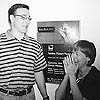 ..with OAE
principal violin Alison Bury ..with OAE
principal violin Alison Bury
Photo: JG Andreas Scholl has worked with
most of the important Baroque specialists of the
day including Chiara
Banchini, William
Christie, Christophe
Coin, Michel
Corboz, Paul
Dyer, John
Eliot
Gardiner, Reinhardt
Goebel, Philippe
Herreweghe, Christopher
Hogwood, René
Jacobs, Konrad
Junghänel, Robert
King, Ton
Koopman, Paul
McCreesh, Nicholas
McGegan, Roger
Norrington, Christophe
Rousset, Jos
van
Veldhoven, Dominique Veillard and Roland
Wilson. His regular solo partners
include cemballist Markus Märkl and the
lutenists Crawford Young and Edin Karamazov. His
long-time lute partner was the late Karl-Ernst
Schröder. Ensembles with which
he performs include the Netherlands
Bach
Choir, Cantus
Coelln, the Orchestra
of
the Age of Enlightenment, Musica
Antiqua Köln, the Berlin
Akademie
für Alte Musik, the Freiburg
Barockorchester,
the Australian
Brandenburg
Orchestra and, recently, Accademia
Bizantina.
The composer Marco Rosano is creating a new Stabat Mater for Andreas
Scholl. In popular music, he
works with rock countertenor Roland
Kunz.
Click
here to
hear a demo recording of the new Stabat Mater.
... |
| Repertoire | 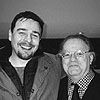 ..with
Richard Levitt ..with
Richard Levitt Photo: JG Andreas Scholl's
decision to specialise in Baroque music was
influenced by his training in Basel and particularly
by his teacher, René Jacobs, whom he
considers to be the finest alto singer of the music
of the period at the present time: 'a natural
Baroque singer'. He says: 'There are no style police
who will fine you if you sing Schubert songs as a
countertenor but, for me personally, I made the
decision that first of all I'm a countertenor, and I
studied in a school that specialised in mediaeval to
late Baroque music so I know best how to perform
that kind of music.' Scholl's range is the
same as that of the 18th century alto castrato, Senesino,
for whom Handel wrote his greatest alto roles.
Scholl describes Handel's writing for alto as the
most singable of all Baroque music and Sir John
Tavener calls Handel 'the greatest humanist composer
of all time'. Scholl's musical and humane-religious
sensitivity match perfectly both the content and
range of the great alto works of Bach and Handel. He
has revealed, to German audiences in particular,
some little-known masterworks of the German Baroque
composers whose music he sang as a child, and has
thereby made a significant contribution to the
modern rediscovery of the Baroque repertoire as a
whole. He has been invited to sing the role of
Oberon in Britten's A Midsummer Night's Dream
but considers this too big a challenge at this stage
of his career. His 2001 album of folksongs, Wayfaring
Stranger, was a very personal
project, well-received by the CD-buying public but
not universally acclaimed by his fellow musicians,
some of whom who regarded it as an inappropriate
departure.
Click here to
check Andreas Scholl's full recorded repertoire, indexed track by track and
by composer
... |
| Bach | 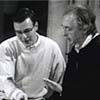 ..with Philippe Herreweghe ..with Philippe Herreweghe
Bach is the
composer whose work Andreas Scholl finds both the
most difficult and the most rewarding. He has a deep
appreciation of the spiritual content of Bach's
religious work and the rhetorical intention of the
composer. Unlike some Baroque composers, Bach 'wrote
all the notes' for the singer and yet, Scholl says,
the depth and complexity of the music carrying the
text is such that '... once we start to sing it, a
whole cosmos opens up and we can never get to the
bottom of it.' After recording one of Bach's
solo cantatas for alto, he says, he nearly wept.
'The piece was so mighty, I felt just like an
ant.' For Scholl, the Mass
in
B minor is the culmination of
Bach's religious work and, above all, the Agnus
Dei, which he describes as the greatest
single work written for the countertenor
voice. He says that when Bach writes
for this voice, the part carries the core of the
message of the whole piece, such as in the Erbarme
Dich of the St
Matthew
Passion, recorded with Philippe
Herrweghe, where the appeal of the broken soul to
Christ is one of simple, unqualified contrition: the
singer must deliver it with the simplest, most
intense feeling. He makes a similar point
about Es ist vollbracht, in the St John
Passion, which he describes as the
moment of the pivotal question in the whole drama:
the witness must now decide whether he believes that
the moment of Christ's death is in fact the moment
in which his own salvation is accomplished.
Andreas Scholl has recorded the St John Passion
with both Michel
Corboz and Philippe
Herreweghe, and he sings Von den
Stricken meine Sünden and Es ist
Vollbracht on both recordings. ... |
| Performance | 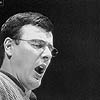 In his student
years, performance was a fairly casual, friendly
business. When early professional opportunities
offered, Andreas Scholl had to battle to overcome
his acute natural shyness. Even so, performance has
priority over recording for Scholl. He speaks
enthusiastically of spending time with an audience
and is remarkably unstarry, even to the extent,
occasionally, of seeming to find applause
embarrassing. He enjoys oratorio and other ensemble
work as much as solo recital. He is in constant
demand in every continent. Click here
for Andreas Scholl's performance schedule, as far as
it is known.
... |
| Opera | 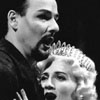 ..As
Bertarido, with Emma Bell (Rodelinda) ..As
Bertarido, with Emma Bell (Rodelinda)
Andreas Scholl
refuses to describe himself as an opera singer but
rather as a singer who does opera. Not anxious to
make an early start on a career in opera theatre,
his only major roles to date have been Bertarido in
Handel's Rodelinda
(Glyndebourne, 1998, 1999, 2002) and the title role
in Handel's Giulio Cesare
in Egitto in the Royal
Danish
Opera production of 2002, which he
had already sung in a platform performance at the
London Proms. He was reluctant to
accept the Rodelinda offer at first, but
Richard Levitt persuaded him to do it. Feeling that
he ‘knew nothing about doing opera’, he carefully
learned the whole work thoroughly before he went to
England and then had to put up with the appellation
‘swot’ from colleagues who were still mastering the
work. ‘Well, at least I could do that, even if I
still had a lot to learn when I got there,’ he says
with a grin. It was a huge success and he 'stopped
the show' (Sunday Times). According to
James Bowman, who describes himself as 'an
unqualified admirer of Andreas', people 'went into a
kind of trance' when he sang Dove Sei? The
Financial Times said of his Vivi tiranno:
'...such intelligent virtuosity ... time stands
still and you feel he is speaking to you.' He
revived this role for his debut with the
Metropolitan Opera, New York, in 2006, to great
acclaim and he will sing the role in New York again
in 2011. In 2008, he sang Arsace in the Royal Danish
Opera's Partenope
which Decca recorded for DVD.
Click here to
go to the Opera page of this site.
... |
| On stage | 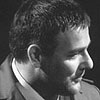 xas Giulio Cesare, 2002 xas Giulio Cesare, 2002
Since 2001, critics
and audiences have commented on his increasingly
commanding stage presence. In February 2002, Le
Monde called him 'Le Roi Scholl'
after his reprise of the role of King Bertarido in
the Paris production of the
Glyndebourne
Rodelinda. His immensely
affecting characterisation together with his ability
easily to fill the relatively large Paris
theatre-space with his voice, whether singing piano
or fortissimo, were widely noted as the
measure of his development in opera since his 1998
debut. After Paris, he remarked that he
finally felt happy to tackle the greatest castrato
roles. Having now also performed Giulio
Cesare, he hopes, eventually, to
tackle all seventeen of the starring roles created
by Handel for the great castrato Francesco Bernardi,
better known as Senesino. In 2006, Andreas
Scholl again impressed both audiences and critics
as Bertarido, this time in New York, and he is
currently working on other Handel hero roles.
|
| The teacher |
Click here
to see photographs of Andreas Scholl teaching at Villa Musica
in 2002.
Click here to see photographs of Andres Scholl teaching at Aldeburgh in 2005 .
|
| Popular music | 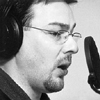 Andreas Scholl has always written songs as well as music for ballet and theatre. He has a professional sound studio in his home. His White as Lilies, based on ideas of John Dowland, is on the 1995 CD The Countertenors (with Dominique Visse and Pascal Bertin). It was a huge hit in Korea when used in a TV commercial and was later released there in an orchestrated version. Andreas Scholl intends to release a CD in this genre.
In December 2003,
Andreas Scholl gave his first public performance in
popular music in an eclectic programme of electronic
and orchestral works which included four of his own
compositions. His All beauty must die
brought the house down. Alongside Andreas
Scholl was fellow Baroque countertenor, Roland
Kunz, who specialises in setting
Elizabethan English poems to his own electronic
music. The two countertenors duetted in Scholl's and
Kunz's songs, backed by Kunz's band die
Unerlösten and the
Rundfunk-Sinfonieorchester Saarbrücken under Rick
Stengårds.
Click
here
to read about this project. ... |
| The singer | 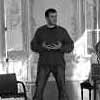 Andreas Scholl doesn't practise scales much, preferring just to keep on singing (one thinks of pianist Andras Schiff) and this means constant work. He occasionally goes back to his teacher to ensure that no bad habits have crept in. Each new aria takes about a month's work, a couple of hours every day, to perfect. After that, with the slog behind him, he tries not to work too hard 'on the night', simply enjoying singing. 'The art,' he says, 'is not to show that it is an art.' Usually, the more he enjoys himself, the better the performance.
Sometimes the
effort required is greater than usual and sometimes,
he says, he cannot account for the audience's
reaction. There are times when he feels he
gives a near-perfect performance but without much
response. At other times his performance is below
the standard he hoped to reach yet the audience is
delighted. In every performance, he feels himself to
be an instrument of the music and the composer and
of the given-ness of his extraordinary voice, of
which he is well aware. He dislikes both vanity and
false modesty in singers and concentrates wholly on
the content of what he is singing: 'Lieber erstmal
Lieder'. He works hard on the music, prepares
himself mentally and physically and gives all he can
when performing but feels the final result is not up
to him. In some countries, he may be the first
countertenor the audience has ever heard. In 2000,
Andreas Scholl was introduced in the Far East as
'the greatest living castrato' but he discreetly
declined to comment on the epithet or to mention
that he has a daughter. Click here
to read some of Andreas Scholl's own remarks on
performance, his voice and music. Constantly
travelling the world, Scholl finds himself playing
ambassador for the world's countertenors,
explaining that the increasing popularity of this
voice has been the result of the resurgence of
interest in early music, the music of the
Renaissance and Baroque in particular. He is aware
of - but plays down - his personal following, but is
happy to exploit it in order to introduce people to
music with which they may not be familiar. 'People
are open but they sometimes need someone to lower
the barriers.' One of the reasons he moved from
Harmonia Mundi to Decca was that Decca's powerful
marketing operation would be able to introduce the
relatively little-known Baroque repertoire to a
large number of people than could a speciality label
with smaller budgets. He has strong views
on the musical education of young people. He is
concerned that they be given access to classical
music despite the effort required to appreciate and
enjoy it and the fact that it does not provide the
instant gratification afforded by some other
modern-day diversions. ... |
| 'Did I not own
Jehovah's pow'r ... ' |
 Photo: JG Like
King Solomon,
his highly acclaimed 1999 role with the Gabrieli
Consort, Andreas Scholl gives the credit
to God for his outstanding gifts. He describes himself
as a religious man - although, he says, no longer a
Catholic - and he is conscious of his responsibilities
as both man and musician. He constantly emphasises the
essentially collaborative nature of music-making. In
European sacred music, the countertenor voice has
often been used to denote the Holy Spirit and Scholl
likes to remind people that 'music is there to praise
God. The Latin phrase is movere et docere,' he
says. 'To move people - and to teach them.' Copyright © 2004 Jill Gunsell,
with thanks to Dr Johannes Scholl
|
More information about all the ensembles and recordings mentioned here can be found on the Links and Discography pages of this site.
Critical comment can be found on the Applause page.
Picture credits can be found in the Photo Gallery
Andreas Scholl is best described as a COUNTERTENOR.
He is ALSO correctly described as an ALTO and a FALSETTIST.
He is NOT a tenor.
He is NOT a castrato.
*
ALTO is the second highest VOICE RANGE and both men and women sing in it.
MALE ALTOS are also known as COUNTERTENORS.
FALSETTO is a TECHNIQUE used by ALL singers when appropriate and by countertenors most of the time.
*
FALSETTO is a voice production technique for singing high notes. It uses only part of the vocal cords plus the resonant spaces in the head and neck, rather than those in the chest and upper body. The longer the vocal cords (and men's are longer than women's) the easier falsetto is to 'do'. Using falsetto technique and head voice, a man can sing higher than if he used his full vocal cords and his chest voice.
'Falsetto' has nothing to do with 'fake'. It is a musical addition to the normal - or 'modal' - voice. Untrained falsetto can sound awful, though (remember 'Tiptoe through the tulips'?) which is why it takes takes years of training to use it as sweetly as Andreas Scholl.
Anyone can 'do' falsetto, male or female. Male pop singers use it all the time. Try it yourself. Press your hand flat against your chest and sing a bit of 'Thriller' like Michael Jackson or 'Barcelona' like Freddy Mercury - both falsettists. Go as high as you can without screeching. Your chest is hardly vibrating at all. You're singing falsetto, using your head voice. Now sing it as low as you can. Feel the increased vibration against your hand. That is your more powerful chest voice. The audience may not even know when a singer 'changes gear' from chest voice to head voice because with training you can make it sound seamless.
COUNTERTENORS AND CASTRATI
A singer using falsetto is a falsettist. A countertenor is a falsettist who has trained intensively to sing in (usually) the alto range. He uses his head voice most of the time, not his chest voice. Not all countertenors sing in exactly the same range from the top to the bottom of their voices. One can sing higher or lower than another. Like all voice-type names, the word 'countertenor' was coined to distinguish this voice from, and position it in relation to, the tenor voice... above it or below it and so on.
An 18th century castrato like Senesino or Farinelli did not need to use falsetto to sing alto (or sometimes even soprano) because neither his singing voice nor his speaking voice ever dropped to the usual adult range which for Andreas Scholl - and most men - is baritone. A castrato could use his whole chest and upper body because his vocal mechanism remained unchanged from boyhood: a high voice, but now delivered with a fully-grown man's lungs and body-strength. These days, no singer is deliberately castrated in the cause of music but there are a few endocrinological castrati whose physiology gives them the same combination of high voice and powerful projection as the 18th century castrati. They are very rare indeed.
Countertenors like Andreas Scholl can mimic the high voices of the castrati using intensively trained falsetto technique. Falsetto does not harness the chest-driven power and resonance of the castrati, some of whom could (it is thought) produce arena-filling volume like Pavarotti, although that wasn't the big thing, back then, when tonal beauty and expression were far more important, and both audiences and performance spaces were very much smaller than they are today. So, like the castrati, modern countertenors concentrate on producing different 'vocal colours' rather than volume to express different emotions and convey the composer's and lyricist's meaning.
OTHER HIGH VOICES
A separate high male voice-type, the haute-contre - sometimes called high tenor - is a tenor who can sing higher than the usual tenor range but, unlike a countertenor, he does it using chest voice and head voice and sometimes falsetto, too, moving easily between them.Some male singers, although not Andreas Scholl, sing in the soprano range. They are called sopranists and while they are often grouped with countertenors - because they, too, are falsettists - some prefer not to be called countertenors because they do not sing alto.
Some female contraltos and mezzo sopranos can sing the same repertoire as countertenors, and vice versa. They can usually sing louder - and lower or higher - than countertenors because, like tenors, they use chest voice and head voice.How singers are described can depend on what they are singing. A mezzo soprano who can sing low alto may occasionally be listed as a contralto if her repertoire in a particular performance is more usually sung by a 'true' contralto - that is, by one who who only sings in the lower (and lowest) part of the alto range. One old CD lists Andreas Scholl as a contralto. (Now that is unusual.)
CONFUSED?
Well, it can get even more complicated, but this note is deliberately short and - haha - simple, as an introduction for the unwary. It's not a learned thesis and please don't write to us about fach. Just beware of saying 'Scholl's not a falsettist', as though falsetto were A Bad And Unusual Thing. He is, and it's not. It's just one technique among many used by all professional singers.
Oh, and don't make the mistake of calling Andreas Scholl a castrato. You may bump into one of his children.
© 2006 Jill Gunsell
This site does not purport to represent Andreas Scholl or his business associates.
Maria zart
Maria zart von edler Art
Ein Ros' ohn alle Dornen,
Du hast aus Macht herniederbracht,
Das vorlang war verloren
Durch Adams Fall;
Dir hat Gewalt
Sankt Gabriel versprochen;
Hilf, daß nit wird gerochenMein Sünd' und Schuld,
Erwirb mir Huld!
Denn kein Trost ist,
Wo du nit bist,
Barmherzigkeit erworben.
Am letzten End'
Ich bitt', nit wend
Von mir in meinen Sterben.
